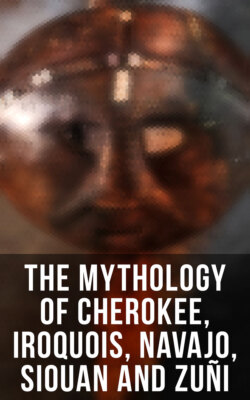Читать книгу The Mythology of Cherokee, Iroquois, Navajo, Siouan and Zuñi - James Mooney - Страница 116
На сайте Литреса книга снята с продажи.
Glooskap's Farewell
ОглавлениеAt length the day on which Glooskap was to leave the earth arrived, and to celebrate the event he caused a great feast to be made on the shores of Lake Minas. It was attended by all the animals, and when it drew to a close Glooskap entered his great canoe and slowly drifted out of sight. When they could see him no longer they still heard his beautiful singing growing fainter and fainter in the distance, until at last it died away altogether. Then a strange thing happened. The beasts, who up to this time had spoken but one language, could no longer understand each other, and in confusion fled away, never again to meet in friendly converse until Glooskap shall return and revive the halcyon days of the Golden Age.
This tradition of Glooskap strikingly recalls that of the Mexican god Quetzalcoatl, who drifted from the shores of Mexico eastward toward the fabled land of Tlapallan, whence he had originally come. Glooskap, like the Mexican deity alluded to, is, as has already been indicated, a sun-god, or, more properly speaking, a son of the sun, who has come to earth on a mission of enlightenment and civilization, to render the world habitable for mankind and to sow the seeds of the arts, domestic and agricultural. Quetzalcoatl disappeared toward the east because it was the original home of his father, the sun, and not toward the west, which is merely the sun's resting-place for the night. But Glooskap drifted westward, as most sun-children do.
